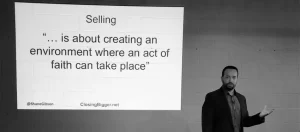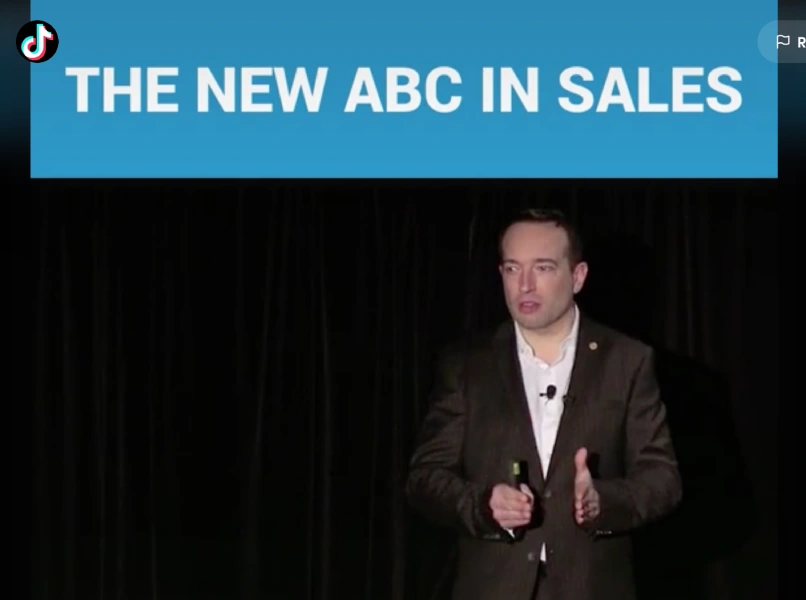How Intent Can Empower Your Sales Conversations

Many variables can impact our chances of closing a deal, they include but are not limited to: industry, geography, financial situation of the customer, product quality, the customer mood or sentiment and a variety of other influences.
When comparing sales people within the exact same company very few things influence the level of one person’s success over the other more than the quality of conversations they have with future and existing customers.
Too often sales training is focused on telling people what to say. What we need to really focus on is how to think and have great conversations. Those people who can have great conversations rarely are thrown off-guard by customer questions, objections or complaints – they’re not afraid to hand the reigns over to the customer. There are several key competencies to being a great conversationalist. The first most important one in my opinion is a positive intent.
Before awareness, asking great questions or listening I truly believe intent comes first. It’s the pillar of your sales strategy. When you pick up the phone or step into a client meeting your intent will frame what you hear, the words you use and even your tonality, body language and pace of conversations.
An sales person answering customer inquiries could have the intent to “get an order” or “sell something from my product line.” This intent limits the customer experience in many cases and also misses larger opportunities. “Get the order” often translates to being an order taker, we ask fewer questions and the questions we ask are about driving the person to a predetermined product or service. If it’s not an ideal fit we often have to rely on hard closes, discounting and heavy objection handling. In this situation our closing ratio is low and the potential for negative customer feedback is high.
For instance if you work in sales at a an insurance company your intent could be “to sell the people one of our insurance products.” With this type of intent we will tend to ask questions that push people toward a narrow selection of products and if they don’t want that product the conversation can end quickly. This type of conversation can often degrade to a price only conversation or miss opportunities you had not considered. A more powerful intent that would build stronger relationships and create a better customer experience could be: “to guide my customers to invest in insurance products that give them peace of mind and take care of them in their times of need, now and in the future.”
This intent immediately expands our awareness, it changes the questions we will ask the customer and also will expand the product offerings we will talk about. All of a sudden we are having a conversation about where they want to retire, their 3 children that they want to take care of and what kind of legacy they want to create. We have laid the foundation for a lifetime customer. We also move the conversation to a place where it’s less price focused and more about the true underlying needs and motivations of the customer.
Positive intent is a conscious act that we need to commit to on every call and interaction. When the phone rings consciously state your intent to yourself before you answer the call. It’s a great way to focus and heighten our level of empathy and engagement on the phone (or in-person). When the our sales process starts with the intent to empower people to succeed it adds immeasurable value to the customer experience and it inevitably makes our job as a sales person more rewarding, personally and financially.
Next steps
- Create a statement of intent: In two sentences or less state what your intent is going to be on each and every call moving forward.
- Type this up, print it out and put it somewhere near your phone where you can see it and recite it before each call.
- Be aware over the next several days of the impact this has on your calls.












